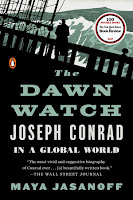Frederick John Thorpe RIP (1925-2018), public service historian
Fred Thorpe, who had a long career with the historical services of Parks Canada and the National Museums of Canada, died recently in Ottawa . I like how his published obituary gave, among the usual details, a nice precis of his historical research His doctoral thesis at the University of Ottawa , which in turn formed the basis of a monograph on French metropolitan fortification in Newfoundland and Cape Breton [...] argued that the great expense of these works was warranted because they defended the cod fisheries from interlopers (read British) and richly supplied the home market with a major source of protein, to say nothing of supporting the country's dependence on valuable international trades in codfish. This obituary information is considerably more accurate than what you would learn from the current text of the Canadian Encyclopedia 's entry on Louisbourg, which directly contradicts Thorpe's (and my) findings, though.it remains credited to me. I confess I also remembe...







